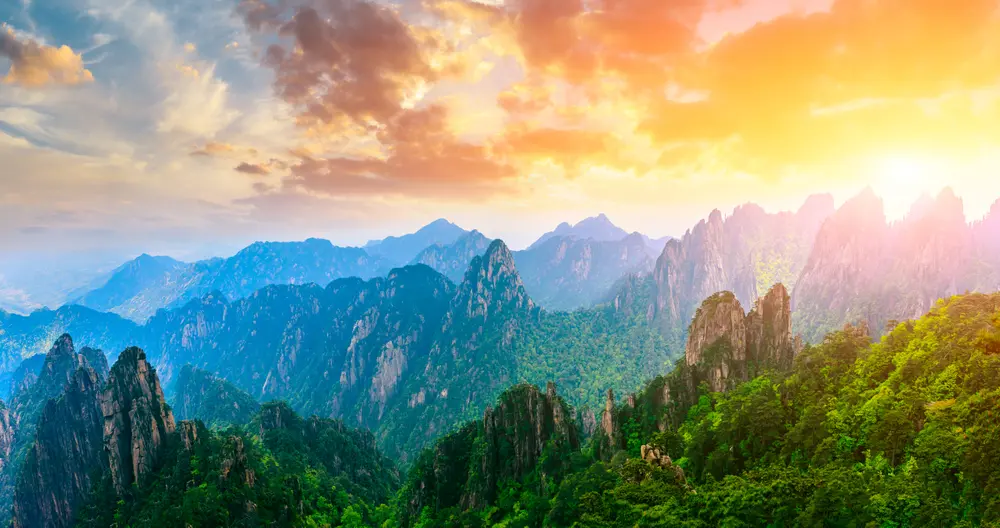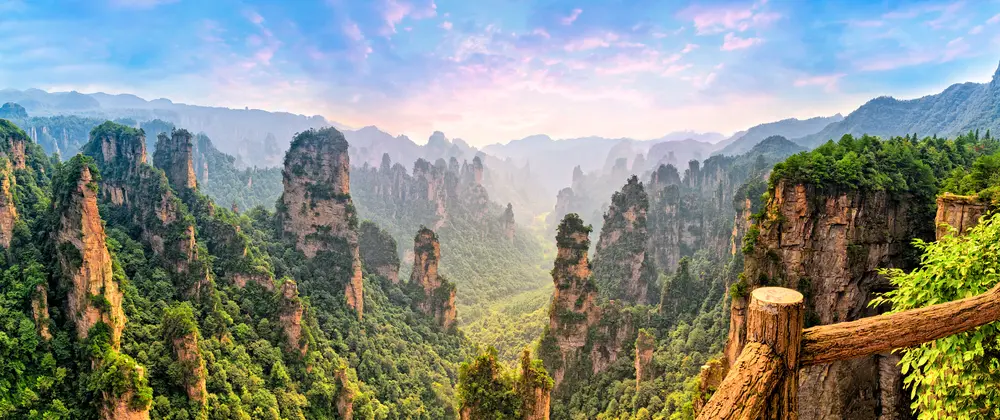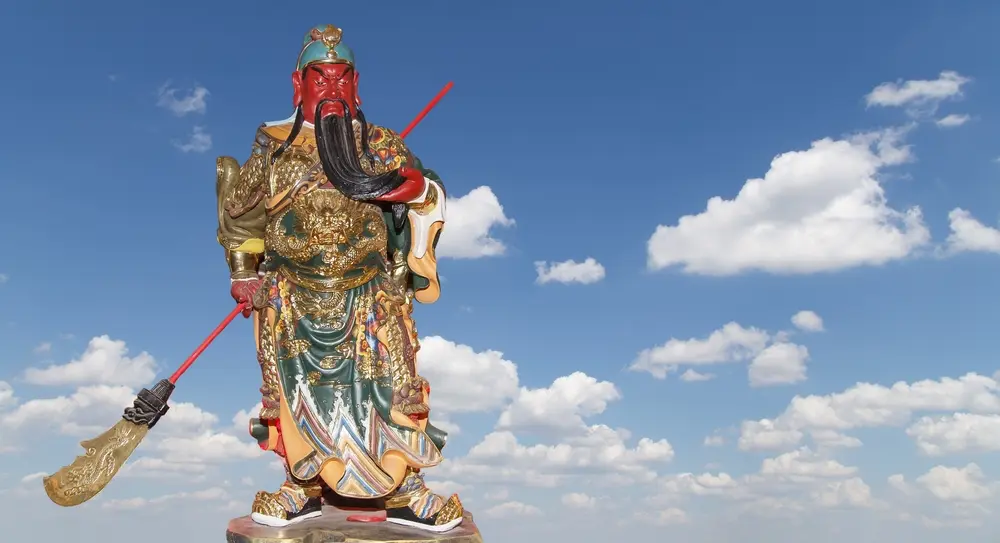
Introduction
What follows is not a political statement, travel guide, or critique – it’s a love letter.
During my visits to China, I have been humbled, moved, and inspired by her people, her mountains, her ancient soul. This piece is offered in reverence – for the elders dancing at dawn, the monks praying in quiet temples, and the deep cultural spirit that moves like breath through every stone and smile. I offer this from my heart, with gratitude.
I have always believed that some places don’t just hold history – they sing it. They breathe it through stone and song, through elderly dancers in the parks at dawn and through monks chanting in centuries-old halls.
And China – oh, glorious, enigmatic China – is one of those places that doesn’t just live, but invites you into a vast, intricate dream. Not a fantasy, but a spiritual mirror, etched in temples, wild mountains, incense smoke, and the kindness of grandmothers smiling at you while peeling fruit in an alleyway.
When I say I love China, I don’t say it lightly or to be polite. I mean it fully – in my heart, in my soul, in my bones. I mean that when I arrive, something ancient in me awakens. Something wild, still, and deeply reverent. This isn’t political or performative. This is a soul’s homecoming – not because I was born there, but because I remember something when I walk through her forests, bow in her temples, or sip tea with someone I’ve only just met who treats me like family.
The Parks That Sing
Let’s begin where my heart first burst open in awe: the public parks. In the early morning light, before the cities roar to life, you’ll find elders – and younger souls, too – practicing tai chi, qi gong, sword forms, and fan dances. It’s not performance. It’s not tourism. It’s devotion.
Imagine a grandmother with hair wrapped in a red scarf, moving with gentle precision – her hands parting invisible clouds, her breath slow and holy. Beside her, a man with weathered skin plays an erhu like it’s the only language he’s ever known. Further along, under a willow tree, a small crowd gathers to sing revolutionary opera – voices strong, filled with memory and pride.
This isn’t just exercise or nostalgia – it’s ceremony. It’s China’s breath expressing itself through its people. It’s living culture, passed down not through textbooks, but through embodiment. I walk through these parks with my palms open, bowing in my heart to every soul I pass.

Where Spirit Doesn’t Shout
One of the quiet blessings of China is that the sacred doesn’t scream at you. It doesn’t knock on your door at dinnertime with a tract and a sales pitch. There are no born-again preachers hollering about hellfire in subway stations, no guilt-drenched flyers about eternal damnation shoved into your hands at the park. The temples are open, the incense is lit, the Bodhisattvas wait in calm compassion – but no one’s harassing you to bow. You’re welcome to pray. You’re welcome to observe. You’re welcome to sip tea, light a stick of incense, or just sit there and breathe in the presence of a thousand years of devotion – without anyone demanding your conversion, your credit card, or your soul.
And thank God – or Buddha – that the Chinese government keeps it that way. Whatever your feelings about their policies, it’s refreshing to walk through a country where spirituality is cultural, embodied, and largely free of the ego theatrics that plague so much of Western religiosity. In China, the sacred doesn’t need a megaphone. It just is. Still. Patient. Deeply integrated into the fabric of life. And thank the ancestors for that.
The Mountains That Remember Everything
I’ve stood on Yellow Mountain (Huangshan), where pine trees cling to granite like ancient poets refusing to fall. I’ve climbed steps carved by hands I’ll never meet, through mist that curled around me like an old friend returning. The beauty here is staggering – but it’s not just about the view. It’s about presence. These mountains don’t entertain. They witness.
At Putuo Shan, sacred to Guan Yin, I wept. Not a sentimental tear – but a deep, cellular ache, as if something in me remembered the prayers that have echoed there for centuries. I lit incense not as a tourist, but as a soul seeking. And the mountain received me. It always does.
And soon I’ll walk the terraces of Wutai Shan, one of the four great Buddhist mountains, known as the home of Manjusri – the Bodhisattva of Wisdom. I already feel it calling. I already know it will strip me of the unnecessary and ask me to listen. Not with ears, but with spirit.

Monasteries, Monuments, and Mercy
Every Chinese monastery I’ve entered – even the ones rebuilt, even the crowded ones – has given me something unspoken. You see, in the West, we often treat sacred places like museums. We take pictures. We analyze the architecture. In China, the sacred still functions. People come not to observe, but to worship. To practice. To live within the sacred.
That changes everything.
And the national monuments? From Tiananmen Square to the Great Wall, from the Forbidden City to the Summer Palace, you don’t just walk into history – you walk into the psyche of a civilization that has endured, reformed, broken, rebuilt, and continued, always. Say what you want – but few cultures hold that kind of deep-rooted tenacity.
This is not a culture of self-promotion. This is a culture of continuity. Of ritual. Of resilience. And of astonishing, often quiet beauty.

Dragons, Dances, and Daily Magic
No matter where you are – on the coast, in the mountains, or in Luoyang where Buddhism landed in China – there is magic in the air – an energy that carries timeless traditions, languages, dialects, perspectives, and food.
Let’s not pretend China doesn’t have some serious swagger. She’s not some delicate ancient doll – she’s a dragon queen with powerful Qi running through her hair – and red rocket fuel in her veins. This country will serve you street noodles that will make you beg for more – then slap a poem on your soul so beautiful you’ll forget your name.
China will blindside you with an eighty-year-old park dancer who moves like water and invite you to join her. She’ll flex her megacities and mystics in the same breath – as if to say, “Yes, we’ve got 5G, brilliant tech, and genius minds – and also an immortal monk living on a peak, what of it?” And I love her for that.
China doesn’t apologize for her complexity – she invites you to bow to it. And if you’re too busy judging to see the beauty, well, she’ll just keep singing anyway.
The People Themselves
The first time I bowed to a monk at Putuo, he touched my shoulder and said, “You’ve been here before.” And I had – in ways that aren’t easy to explain. The people of China, at their core, are not separate from their landscape or their ancestors. They carry it with them – in their food, in their hospitality, in their poetry, in how they honor their elders, and how they feed you even when they barely know you.
I have danced with strangers in Beijing parks. I’ve been taught tea rituals in narrow side-street shops. I’ve shared laughter that needed no translation. I’ve been watched, yes – as a foreigner, one is often observed. But I’ve never felt unwelcome. I’ve felt seen.
Even when I’ve been aware of eyes on me, it’s been mostly curiosity, not threat. And yes, I’ve felt the state’s presence – you’d be naive not to. But I’ve also felt the people’s presence – and that is the China I love. That is the China I return for.
To Those Who Project Fear
Some may ask why I praise a country that others fear or misunderstand. I don’t engage in politics here. I engage in the human – the soul – the timeless. I praise what I’ve seen and touched and loved. China is simply breathtaking.
I write this to remind others that love is possible even across cultural lines. That reverence is more powerful than rhetoric. That to travel is not to dominate or to critique, but to receive.
China has given me so much. And I offer this small poem of gratitude in return.
Final Blessing
To the mountains, I say thank you for your stillness.
To the parks, thank you for your song.
To the people, thank you for your grace.
To the monks, thank you for your prayers.
To China – the vast, living temple that you are –
Thank you for letting me walk through your sacred hallways, again and again.
I bow to you.
Mandarin Version
中国的灵魂
一封献给中国山川与人心的情书
—— 保罗·瓦格纳(Paul Wagner)
以下内容并非政治立场、旅游攻略或评论——而是一封情书。每一次踏上中国土地,我都感到无比谦卑、感动与启发——源自她的人民、山河与古老灵魂。这篇文章是献给中国的敬礼——献给晨曦中跳舞的长者、静默庙宇中祈祷的僧人、以及那在每块石头与微笑中流动的文化之气息。我怀着感恩与敬意,将这份心意呈上。
我一直相信,有些地方不仅仅记载历史——它们在吟唱。它们通过晨曦中广场的舞者、千年古刹的法音,透过石壁与人声、通过老妪在小巷剥水果时含笑的目光呼吸中国。
中国——啊,辉煌又神秘的中国——它不仅活着,更邀你进入一场浩瀚而细腻的梦境。它不是虚幻——是一面灵魂的镜子,印刻在庙宇、山林、香烟与陌生人眼中的温暖里。
当我说我爱中国,我不是客套,而是全然真实。我的心、我的灵深处都在说:当我踏入这片土地,我体内某种古老的东西苏醒了——那是野性、平静、与深深的敬意。这不是政治,也不是表演。这是一个灵魂的归程——不是因为我在那里出生,而是因为我记得,当我穿梭于山林,俯首于庙前,和陌生人共饮一杯茶,感受到如旧友般的热情时候。
唱响的公园
我的心第一次被震撼,是在中国的公园里。黎明前,那些还未苏醒的城市中,广场里,老人和青年起练太极、气功、剑舞、扇舞。这不是表演,也不是旅游;那是虔诚的生活仪式。
想象一位头裹红巾的老嫗,她动作缓缓却精准,仿佛双手拨云;呼吸如圣。旁边一位皮肤褶皱的老者拉起二胡,音符像他一生的语言。柳树下,一群人唱着红色革命戏曲,声音里满是记忆与自豪。这不仅仅是运动,不仅仅是怀旧——这是中国的气息从人民中呼出,是一种继续流动的传统,不通过教科书,而是通过身体传承。我在这些公园里走着,双手轻合,心内默礼每一个在晨光中活着的灵魂。
精神不需喧嚣
我爱中国,因为这里的神圣不需要嘶吼。它不会在晚饭时敲你的门推销教义,不会在地铁站发传单向你兜售永生。这里没有地铁口压力式的布道,也没有让你满心愧疚的宗教广告。
寺庙敞开,香烟袅绕,菩萨慈悲守候——没人逼你行礼、祈祷、捐赠,也不用执着于一个灵魂的契约。你可以祈福、可以观看、可以泡壶茶、点一支香,或者什么都不做,只是坐下,与千年敬意共呼吸——无需你作证,也无需你皈依。
更感谢祖先,也感谢现今中国政府在一定程度上保留这份清净。无论我对某些政策有何感受,至少在这里,灵性是有文化根基的,是身体化的,是没有西方宗教性自大的戏剧性的。在中国,神圣不需要麦克风。它只是,静静地、耐心地、深植于生活的织体中。
记得一切的山
我曾站在黄山,松树攀附花岗岩,如同古代诗人拒绝倒下。我踏上石阶,迷雾盘绕,如旧友归来。黄山之美令人震撼,但更在于觉知——这里的山不消遣你,而是目睹你。
在普陀山敬念观音时,我潸然泪下。那不是情绪化的哭泣,而是一种细胞的记忆——好像我记得几世纪以来的祈祷。点一支香,不是游客,而是灵魂的寻道者。山回报我,它总会。
很快我将行走于五台山,那座文殊菩萨常驻的智者之山。我已经感受到召唤,知道它将剥离我身上的冗余,教我聆听——不是用耳朵,而是用心与灵。
寺庙、纪念与慈悲
每当我进入一座中国寺院——哪怕是翻修重建、游客涌动的庙宇——我都收获一种无声的赠礼。在西方,我们常把圣地当博物馆——拍照、分析建筑。而在中国,神圣依旧在运作,人们走进来不是为了观赏,而是为了敬拜、实践、生活在神圣之中。
这彻底改变了体验。
国家纪念地也如此——从天安门再到长城、紫禁城到颐和园。你走进去,不只是踏入了历史,还踏入了一种继续不断的文化意志:它经历过摧毁、重建、延续。少有文化如中国般能拥有如此深根的韧性。这不是自我膨胀,而是仪式、复兴、规矩、安静之美。
龙、舞、与每日魔力 (部分彩段)
从海岸到黄山,从洛阳到五台,无处不散发魔力——这股能量携带着传统、语言、方言、视角与美食。别装作中国没有点张扬的风格。她不是什么古色古香的瓷娃娃——她是一位龙女王,发中流动强劲的气,血液里燃起红色火焰。她会给你一碗让你哭着再来求一碗的街边面条,再用一首诗撞击你的灵魂,让你忘记姓名。她会让一位八十岁公园舞者流水般舞动,再邀请你共舞。她能在一口气中炫耀她的5G超网速,又轻轻放下一位隐世高僧挺立山巅:“有科技有智慧,也有隐者,怎奈何?”我因此深深爱她。中国不为复杂道歉——她只是邀请你低头致敬。如果你忙着评判而错过美,她仍会继续歌唱。
人,即土地
我第一次向普陀的和尚礼敬,他轻抚我肩说:“你来过这里。”那一刻,我知道——我确实曾来,只是方式难以言说。中国人的根不仅土生风景,也是祖先、山川与时代的延续。他们携带它,如携带呼吸:在饮食、热情、诗词、孝敬祖辈的方式,以及即使陌生,也余温递你一份果。
我与陌生人共舞于北京公园;在狭巷茶肆学到茶礼;有了无需翻译的笑声。确实,我被注目——凡外国人难免。但我未曾感到不受欢迎。我感到——被看见。哪怕我意识到有人在观察,那多是好奇,不是敌意。我感受到的是人的存在,而这,就是我爱中国的原因,也是我一次又一次回来寻常的地方。
致投射恐惧的人
有人问我:为何你歌颂一个被很多人误解或恐惧的国家?我不谈政治。我谈人性、谈灵魂、谈时间的流淌。我赞颂我触碰过、见证过、爱过的一切。中国,确实令人屏息。
我写这篇文字,是为了提醒人们,即便跨越文化,爱依然可能。敬意比言辞强大;旅行不是征服,也不是批判,而是接纳。
中国给予我太多,而我以这小小而深情的诗献上感谢。
最后的祝福
山啊,感谢你的静止。
公园啊,感谢你的歌声。
人民啊,感谢你的温柔。
僧侣啊,感谢你的祈祷。
中国——你是广袤的活寺院——
感谢允许我一次又一次走过你的神圣殿堂。
我向你深深一躬。




